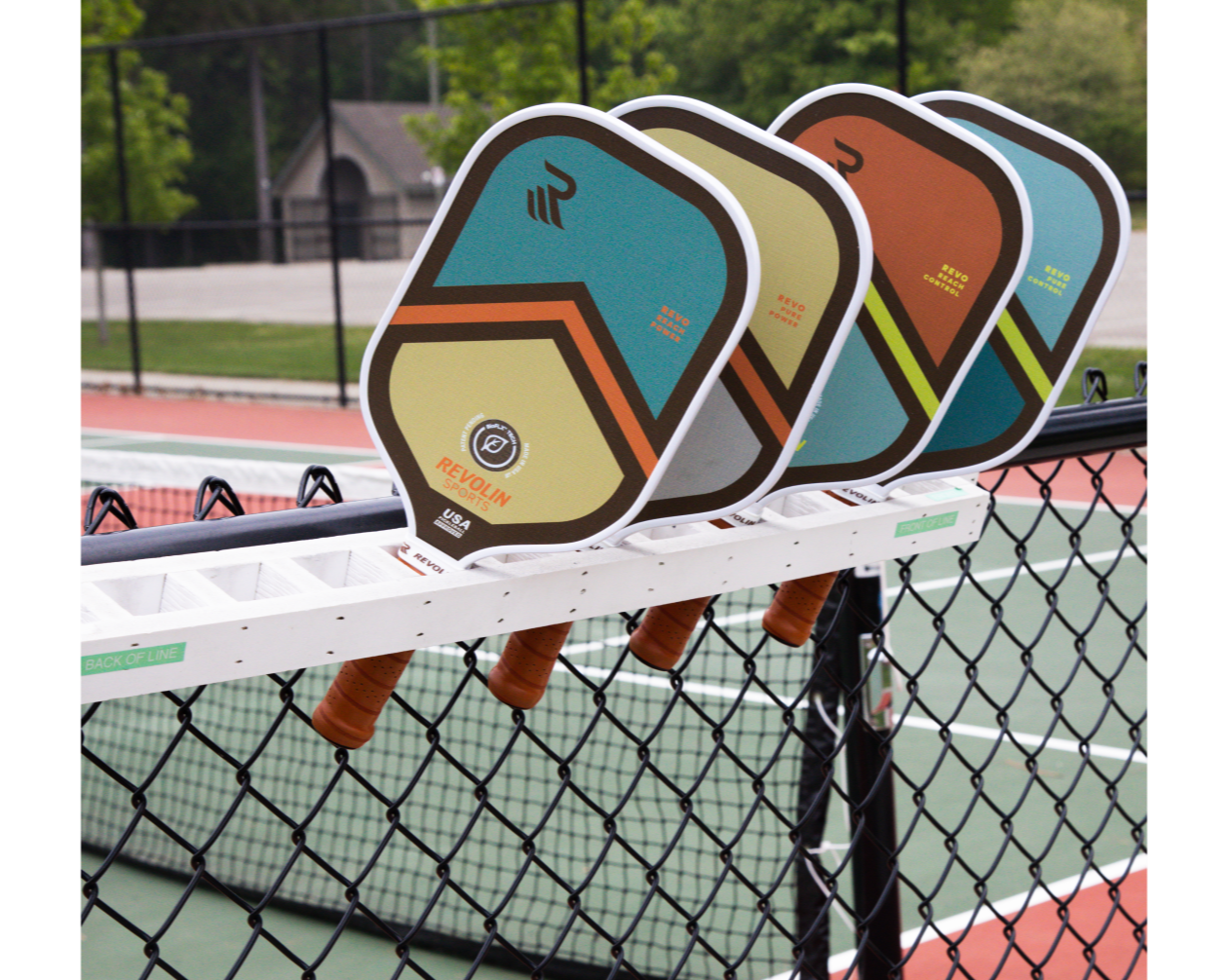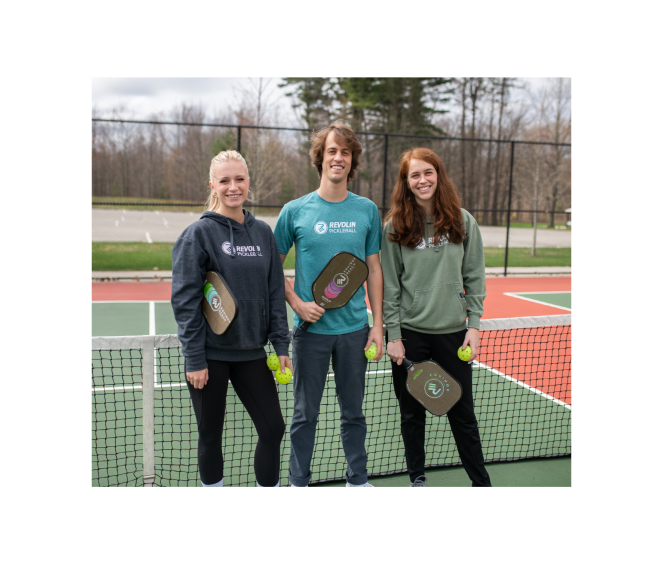Interested in starting your own entrepreneurial journey in sports and outdoor goods but unsure what to expect? Then read up on our interview with Hugh Davis, Co-Founder of Revolin Sports, located in Holland, MI, USA.
What's your business, and who are your customers?
Revolin Sports designs, manufactures, and sells high-performance sporting goods that are made in the USA and are better for the planet, starting with pickleball. We empower pickleball players, from beginners to pros, with innovative, high-quality equipment so they can feel their best on the court. Because our paddles are made from renewable, CO2, absorbing flax and hemp materials, our customers also feel better about their impact on the earth.

Tell us about yourself
Revolin Sports grew from my love of pickleball and a belief that I could make better equipment for players and the planet. Deep down, I'm an inventor. When my pickleball paddles kept breaking, I knew I had to find a better way forward. On this journey, I became incredibly conscientious of the harmful impact that the traditional materials used to make high-performance sporting goods have on the planet. I knew we could do better and that I had the tools and the drive to make that happen. Thus began Revolin Sports. Today, I am motivated by an amazing group of customers that want products that are even better for their play and for the planet and a long-term vision of a sporting goods brand that revolutionizes the way sporting goods are designed, made, and disposed of.
What's your biggest accomplishment as a business owner?
Revolin Sports is pioneering the use of sustainable materials in high-performance sporting equipment. We have applied our patent-pending biocomposites to create innovative equipment for the fastest-growing sport in the USA - pickleball. Our growth, enabled by the goals above, is our biggest accomplishment. In 2022, our sales grew over 300%
What's one of the hardest things that comes with being a business owner?
The hardest thing about being a business owner is knowing when and how to delegate ownership of products, systems, and processes. When it is just one or two people with an idea, things can happen fast, very few stakeholders need to be considered, and you know everything that is happening in your business. As our team has expanded from three founders to 5 full-time partners and 6 supporting team members, we couldn't keep doing things like we used to. We brought on individuals with much more experience than us and we had to be ok with letting them own and grow more and more areas of the business. We have to trust our team and be ok with not knowing 100% of what's going on 100% of the time. We also have to be much more intentional about constant, clear, and concise communication across our departments and team members. This helps keep our rapidly growing business organized and not siloed. It's much easier said than done!
What are the top tips you'd give to anyone looking to start, run and grow a business today?
- Find a co-founder or two. (Three is too many). Growing a business as a solo founder is infinitely more difficult than starting a business with someone else. Having a committed business partner who truly understands what your business is going through is irreplaceable. You can support each other in the hard times, complement each other's strengths and weaknesses, celebrate the good time, etc... Over the past six years since I entered the entrepreneurship world, I have formed relationships with 100s of start-ups and founders. Very seldom do I see a company with a solo founder get past 6-18 months in business. It's just so hard to hit milestones and gain momentum with only one person driving the idea forward each day. Without my co-founder, Sophie and Greta, I would have given up on my idea long ago.
- Ask for help often. Whether it's finance, legal stuff, HR, or visual design, there are people that you know who are better at certain things than you are. Be humble and ask for help. This often leads to a better result but also helps you build relationships and a network of people who understand aspects of your business and can be leaned on (and even hired) in the future when those types of needs come up. Most people are willing to help a start-up founder for free the first 1-2 times you ask them something.
- If you aren't a little embarrassed by the first product or service you launched, you launched too late. Testing your idea in the real world as soon as possible and then learning and updating/pivoting is the only way you will know what parts of your idea are working and what parts aren't. At Revolin, it took us five years and 200+ prototypes to launch our first pickleball paddle to the market. I still look back on that first product with a grimace and a head shake. It wasn't great, but we learned SO much about what people liked about it, what they didn't, and what stories resonated about our products and brand. You won't get everything right the first time, so don't try to, and launch with your Minimal Viable Product. In Revolin's case, we probably could have launched a product that was 10% worse two years earlier and learned very similar things from our customers, and made similar pivots so that two years ago, we could have already been where we are today. Hindsight is 20/20, though.
Where can people find you and your business?
Website: https://revolinsports.com
Facebook: https://www.facebook.com/RevolinSports
Instagram: https://www.instagram.com/revolinsportspickleball
LinkedIn: https://www.linkedin.com/company/revolin-sports
If you like what you've read here and have your own story as a solo or small business entrepreneur that you'd like to share, then please answer these interview questions. We'd love to feature your journey on these pages.
Turn your craft into recurring revenue with Subkit. Start your subscription offering in minutes and supercharge it with growth levers. Get early access here.
